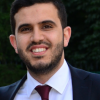The security apparatus - armed forces, police, gendarmerie, border guards, customs and immigration, and intelligence and security services, as well as security oversight bodies (ministries of defence and internal affairs, financial management bodies and public bodies) - lies at the heart of the state’s legal monopoly over the use of force. Security institutions are meant to fulfill a protective function from both external and internal threats, providing security as a public good subject to civilian control and oversight accountable to the polity. Yet in many regions, the security sector is institutionally and politically powerful, absorbs considerable financial resources, and is weak, ineffective, or even violent and predatory.
Efforts to reform and reconstruct security institutions and practices have also become a major tool of international interventions in conflict-affected and fragile states. Yet there are significant shortcomings in both knowledge and practice regarding these large-scale efforts to reform and re-engineer security institutions. To begin, there is no cross-national and longitudinal data collection on the scope, scale, duration, type and focus of security sector reform (SSR) projects worldwide, and little systematic analysis of the conditions or definitions of success and failure that could inform global SSR practices. There is also no coherent account of the causal mechanisms and processes by which ‘pacific states’ and institutions emerge and become socially and politically embedded.
These weaknesses in existing knowledge generate the three research puzzles guiding this project. Firstly, what are the normative and conceptual foundations that inform the cognitive authority and institutional imaginary of externally-led programmes to re-engineer, reconstruct or reform security institutions in states that are conflict-affected, fragile or in transition? Secondly, how do these map onto (or not) the historical experiences of the states and institutions that are taken as models for these efforts? And finally, what are the consequences of this for SSR programming in states that are conflict-affected, fragile or in transition, and can they explain (or not) the persistence of particular global practices?
Duration: 2023-2027




